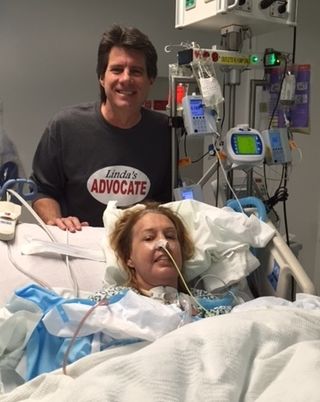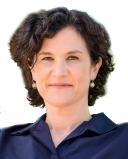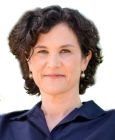Grief
When Grief Gets Complicated
How to best care for your loved one and yourself.
Posted January 8, 2018
Linda was a friend of a friend. As a doctor who practices both critical and palliative care medicine, I am frequently invited into the lives of people I may not know by desperate loved ones. I never met Linda in person, only through an impressive email journal her husband John wrote during the ordeal of her illness. Our mutual friend had forwarded me the journal, with John’s permission, in the hope that I might be able to help.
Linda was born with a bad heart valve, which had required replacement and a pacemaker a few years back. But the delicate replacement valve had gotten chafed by an errant pacemaker wire, and scarred slowly down over time. It was a subtle undoing, not enough to be obvious, but enough to cause nagging health problems. A deformed valve can’t do its job, which is to prevent blood that has been pumped forward from sliding back. And the results over time can be terrible—rising pressures from blood backing up before reaching the heart cause swelling and dysfunction of organs, and the ineffective pumping of oxygenated blood out of the heart robs organs of the oxygen critical to life. Linda’s liver, a critical organ which can get permanently scarred by high pressures over time, had been found to have cirrhosis on biopsy, a serious and often life-limiting condition in and of itself. Medications to help the valve function better would never be effective enough to turn things around—only the surgeon’s knife might restore her heart function and prevent her liver from continuing to scar down. But her poor medical status made heart-valve surgery very risky. And the surgeons wouldn’t even know if surgery would be technically possible until her heart was open on the table. Her cardiologist recommended that she go across the country to a highly respected institution in the midwest that specializes in such surgeries. Their cardiac surgeons were considered the A-team for managing problem valves.
Her husband John, a civil engineer, possessed all of the traits of an excellent advocate. First, he was completely devoted to Linda and her recovery. A photo he sent to his readers shows him at the head of Linda’s bed smiling and dressed in a T-shirt that reads “Linda’s Advocate” in bright red capital letters.

And second, he was a man used to solving problems. He planned to attack this one as never before. He possessed the education, resilience, ingenuity, and confidence to overcome most obstacles, and when it came to saving his wife’s life, he would spare no effort.
The early pages of John’s digital journal reveal nervous confidence and guarded optimism. He embarked on their midwestern project fully anticipating that they would overcome the challenges facing them with hard work and determination. He hit the ground running, inserting himself into the medical team with a confidence I have rarely come across in laypeople. He was pleasant but persistent, unafraid to ask questions, to express opinions. And he was impressive. He strived mightily to tease sense out of the Gordian knot that is medical care, never mind the complexity of the physiology of illness, where failing organs drag each other down in a process that is unpredictable and far from linear. In three months, he created his own crash course in medicine, doggedly constructing a patchworked understanding of Linda’s condition. He wrested this information from busy doctors in whatever way he could, snatching whatever time they gave him, and politely and persistently requesting more. His understanding was at once sophisticated and rudimentary, his ability to describe complex physiology to his online community contrasting with his frequent misspelling of medical terms.
Ten minutes into reading, and only one month into their ordeal, I was confident that this would not end well. John was told that each of the conditions cropping up was reversible—and theoretically, in a Petri dish, this would be true. But he wasn’t given the context that any physician would know: as patients begin to die their bodies accumulate more and more problems, each one potentially treatable in a medical textbook, but together, irreversible for even the best medical team in the world. The enlarging blood clots, the bleeding deep within her abdomen, the inability to breathe without the support of a machine, the profound and progressive weakness, the deficits of her sick liver: this was an avalanche no human could prevent.
I have taken care of thousands of critically ill patients, and my gut response was clear: she was dying, slowly but surely. I could tell her other physicians felt the same from the comments John reported in his journal. But no one actually flat out said it. And John didn’t realize it. No one ever called for a palliative care consult. Or a social worker. Yet the variety of medical subspecialists involved in the case continued to grow at a dizzying speed.
The doctors included him in conversations, even solicited his preferences regarding next steps. But despite this access, John still felt that something wasn’t right. His journal is filled with phrases like “Where the hell is everybody?” And “Why do I feel alone?” It reads like the kind of narrative explorers used to write upon venturing into new terrain. And this was an arid, unforgiving terrain, his entries more desperate every day as he pulled the doctors in to help, but while he got ample information, he lacked the bigger picture of progressive organ failure—and what that almost inevitably meant. Every mirage of an oasis engendered a giddy, though short-lived, celebration. By the time he wrote the entry below, Linda was days away from death. But the doctors still hadn’t told him directly that she was dying, preferring to discuss with him the minutiae of her physiology and opine on which drug or nutritional formula to use next.
Here is an excerpt from his journal:
The Saturday Doc is Dr. N., and I was told in the morning he would round shortly—
And long story short, after my many gentle urgings, I did get to see him around 9 pm—
And we talked for a very long time—
He’s an extremely smart Stanford grad—
Among other things, is a student of genetics and knows about Histiocytosis—
I was explaining the radiation heart disease—
And he stopped me and said he doubted that radiation was the cause of her troubles—
That it was actually the underlying Histio disease causing all her trouble—
And he went on for a long time trying to make simple explanations of complex
genetic concepts, cell mutations, etc.
And I tried to focus him down to the immediate issues—
We need some reasoned careful thought to how much coumidin (sp.) we should give her—
And I think we should give her some tonight—maybe 1 mg…?
He said it would be crazy to give coumidin (sp.) to someone who’s bleeding—
I said nope, not crazy at all—
We can deal with the bleed once we get the INR stable—
But a clot would be a disaster—
I did not convince him—
But a hematologist is supposedly coming today so he’ll weigh in.
So I’ve agreed to wait till this am to make decisions—
or not

John was not effectively guided by those who could and should have been helping him. But there was no outright incompetence, no obvious neglect or laziness, no mean-spirited people. Only doctors, the best of the best, extremely smart and eager to help, providing world-class expertise on the organ systems in which they were so expert. The only problem was that this wasn't what either Linda or John really needed.
By the third month, their suffering growing by the day, our mutual friend told me that Linda said to John that she didn’t want further interventions—in other words, she was ready to die. John was in torment. He felt that he had failed her. He tried to convince her to press on. At this point I felt it was a sin of omission, indeed voyeurism, to remain a spectator. I asked my friend if I could contact John. Within a few hours, he called me. During our hour-long conversation, I was moved to tears at his travails. The lack of sleep, the feeling of having to hold up the world, and, the abysmal dearth of guidance from his doctors. In essence, this man had run six marathons one after the other, and was now running on fumes. “This is so hard,” he said. “What should I do next?”
I listened to his exhausted voice. It was clear the man was broken and overwhelmed.
“John,” I said to him, “I’ve never seen anybody advocate this doggedly for a loved one. But this is an incredibly complicated case, even though there are occasional small victories. They aren’t meaningful in the big picture.” I could hear his breathing over the line. I didn’t want to say it, but I knew no one else was planning to, and he deserved to know. “John, it sounds to me like she’s dying,” I said. I waited for him to get angry, to hang up on me. I always do in these moments, although it hasn’t happened yet.
He sighed. Several beats passed before he spoke again. “That’s what I figured you’d say.”
While John knew about every medical treatment available, he was blind to the fact that his wife was actually dying. Being who he was—an effective, high-achieving intellectual who would stop at nothing to get what he needed for his wife—his input was incorporated into the team’s approach. But he wasn’t a doctor, and decisions about the use of Coumadin weren’t his bailiwick. And in taking on this role, he was waylaid from his role as husband. Which is likely what Linda needed most. If he had known that she was dying when I did, weeks earlier, he would have been able to maximize their remaining time together. He would have known whether she would want to focus on pursuing every possible intervention and medication, or instead request that the doctors focus primarily on treating her suffering in order to let her rest and process and grieve, maybe even go home to her own house to die. All of her subspecialists had, no doubt, wanted to do their best for Linda, and for John. But they too were on the conveyor belt, and unable to lift their heads out of the chart, look at this suffering family, and tell them what they so desperately needed to know. And what the physicians treating her must have known.
And so he was set up to run the wrong race, all of his energy consumed on activities best managed by others, instead of those that could bring comfort and maybe peace to the frenzy. John’s perception that he was alone, abandoned, made him all the more desperate to keep working to save his wife. So even when Linda herself began to see that it was time to let go, he couldn’t stop the drive to keep fighting.
John’s journal chronicled his metamorphosis from feeling respect and awe for the doctors, for the magic of it all, into an emotionally devastated person with a profound lack of confidence in the culture he once celebrated. His commentary reflects his surprise and disillusionment with the process of how we care for patients who are dying: imperfectly, remotely, and often at arm’s length.
After our phone conversation, he finally met with a palliative care doctor, an intervention which would ultimately change the entire course of her care, and yet had not yet been considered by the many specialists managing Linda’s care. From this careful counsel, John ultimately realized that the high technology offerings that had been tried, one after the other, were not helping Linda. With the support of the palliative care doctor, John decided to disconnect Linda from the ventilator. Then he watched his beloved wife die, comfortable and with a peace John had thought might never return. But the trauma of Linda’s prolonged dying process left John with a sense of failure, profound pain, and a grief so complicated it might take years to unravel.

I have shepherded many families through the final days of their loved ones. It is never easy. Hopefully, your healthcare team has the skills and courage to provide you with the information that you need to make the best decisions you can. But if they don't, be sure to request it from them. You can't plan for a good death if you don't know your loved one is dying.




